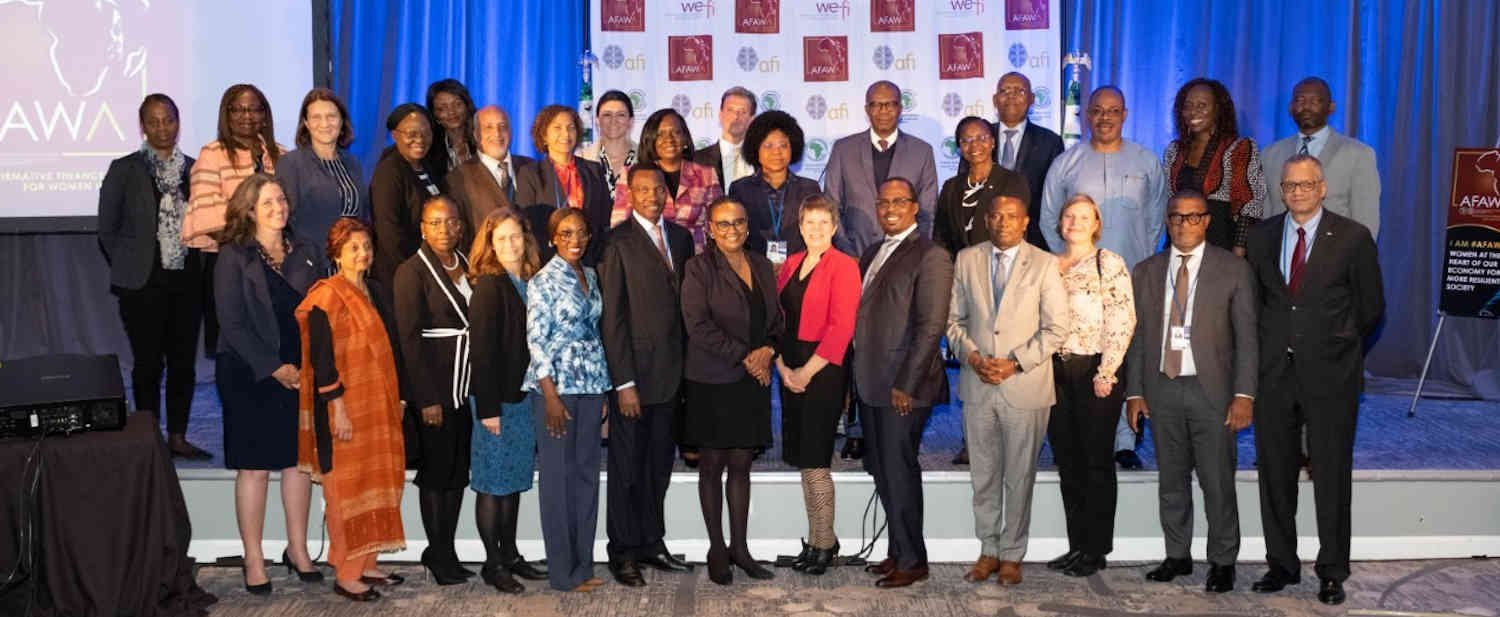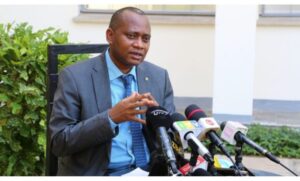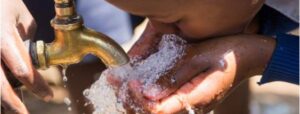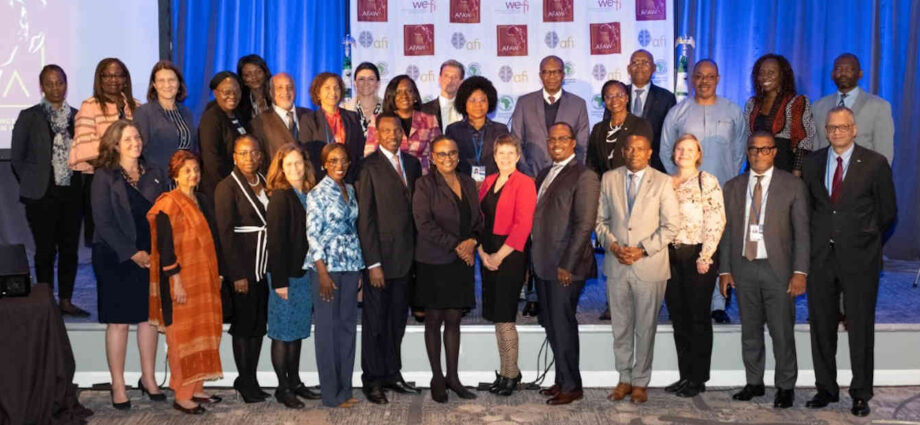
The African Development Bank’s Affirmative Finance Action for Women in Africa program, known as AFAWA, and the Alliance for Financial Inclusion introduced African Finance Ministers and Central Bank Governors to a new partnership set to increase financial inclusion for women-led enterprises across the continent.
At a roundtable dinner held on the sidelines of the International Monetary Fund and World Bank Annual Meetings on 12 October, the Bank and Alliance leadership presented the AFAWA-Alliance for Financial Inclusion partnership to more than 70 guests, including 50 representatives from Ministries of Finance and Central Banks, and 10 of whom are current ministers or governors. The $4-million program supports policymakers, regulators, and other stakeholders to create financial inclusion-friendly policies that benefit small and medium-sized businesses run by African women.
“Through this project, we expect to yield improved data for policy decision-making and improved technical capacity among policymakers at the institutional, national and regional levels. These efforts will lead to an enhanced financial policy and regulatory environment for women in business in Africa,” Bank Senior Vice President Swazi Tshabalala said in her opening remarks.
With financial inclusion high on the agenda of African countries, many nations are setting concrete targets for women’s financial inclusion. When Africa’s women are unable to access finance, Africa will lose out an estimated $316 billion in GDP by 2025, according to a McKinsey study. However, evidence-based support from partnership institutions could help African governments establish an enabling environment.
Representing the Alliance for Financial Inclusion’s management unit, Mozambique’s Central Bank Governor Rogério Zandamela said, “We, as African Central Banks, are very pleased to see the deepened cooperation between the African Development Bank and Alliance for Financial Inclusion since signing a memorandum of understanding in 2017 in Abidjan.”
“I commend the leadership on the launch of the program,” Zandamela added.
Last year, the Bank, through the AFAWA-Alliance for Financial Inclusion partnership, identified countries with the most progressive policies to accelerate financial inclusion. The Alliance selected the Democratic Republic of the Congo, Morocco, Nigeria, Rwanda, Senegal, Zambia and Zimbabwe as case study countries. It based its selection on: having made significant progress towards the financial inclusion of women-led small and medium enterprises; best practices to inform the financial inclusion harmonization process; and providing policy guidance to accelerate this targeted access to finance. For example, in the last decade, Senegal has seen an impressive 900% increase in women’s financial inclusion, with the Democratic Republic of the Congo realizing a 700% increase in the same period.
Representatives from the International Monetary Fund, which recently launched its first Gender Strategy, told event attendees that statistical research and collaboration would aid the new partnership achieve its goals.
“We recognize that reducing gender disparities, especially with access to finance, leads to exponential economic growth. We encourage all countries to publish gender-disaggregated data and to find synergies with new emerging sectors,” said Ratna Sahay, the International Monetary Fund’s Senior Advisor on Gender.
Also in support of the new partnership were: Dr. Beth Dunford, Bank Vice President for Agriculture, Human and Social Development; Malado Kaba, the Bank’s Director for Gender, Women and Civil Society; and Esther Dassanou, Manager of the AFAWA initiative.
AFAWA and the Alliance for Financial Inclusion will implement the joint program across 35 countries represented by Alliance member institutions in Africa, and with regional organizations Union économique et monétaire de l’Afrique de l’Ouest and la Communauté économique et monétaire de l’Afrique centrale.
About AFAWA:
Affirmative Finance Action for Women in Africa (AFAWA) is a pan-African initiative of the African Development Bank, which aims to reduce the estimated $42 billion financing gap that affects women entrepreneurs in Africa. AFAWA offers a multi-pronged approach to address the constraints women entrepreneurs face in Africa. To date, the Bank has approved more than $804 million for lending to 3,500 women entrepreneurs across 23 African countries.
About Alliance for Financial Inclusion
The Alliance for Financial Inclusion, or AFI, is the world’s leading organization on financial inclusion policy and regulation. Roughly 85 member institutions make up the AFI network, including central banks, ministries of finance and other financial regulators from 75 developing and emerging countries. AFI works on empowering policymakers to increase access and usage of quality financial services for the underserved through formulation, implementation and global advocacy of sustainable and inclusive policies.
Source: afdb.org
Share this news
This Year’s Most Read News Stories

Tanzania PS Wants Greater Public Awareness in Health Insurance
Dodoma — PERMANENT Secretary (PS) for Health Ministry, Prof Abel Makubi, said accomplishing universal health insurance requires greater awareness to members of the public before the programme kicks off on July 1, 2023.Continue Reading

Will Tanzania agree to Starlink Internet Service?
Will the Tanzania government let Starlink, the world-famous internet service provider, operate in the country?Continue Reading

MGAO WA MAJI WAWATESA WAZANZIBARI
Wananchi wengi hasa katika maeneo ya Mjini Unguja, wanalalamikia ukosefu wa maji safi na salama huku Mamlaka ya Maji Zanzibar ikikabiliwa na changamoto ya ukosefu wa ujuzi na wataalam katika masuala ya uandisi wa Maji na fani nyengine.Continue Reading











